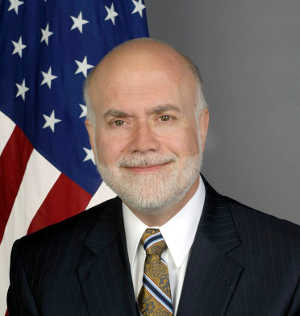Health
US plan for AIDS-free generation raises sustainability concerns

US Ambassador to Uganda Scott DeLisi says his country is committed to seeing a healthy and prosperous Uganda
“We want this to be a stable and prosperous country. But you cannot achieve this goal when 300 people are dying everyday from Malaria,” said Ambassador DeLisi who likened himself to a Public Health Ambassador.
America’s commitment to fighting HIV/AIDS in Uganda comes through millions of dollars channelled through its flagship programme the President Emergency Plan for Aids Relief, PEPFER which has seen the American government invest close to a trillion shillings every year in the health sector over the past couple of years.
Uganda was not only the very first country to benefit from PEPFER, it’s one of the biggest beneficiaries with resources worth US$ 2.3 billion that have come to Uganda. A Ugandan, John Robert Engole was the person in the World, to receive ARV bought with PEPFER funds and lives to date.
However, American officials have openly expressed dismay at the apparent failure by Ugandan officials to recognise and appreciate America’s generosity.
In a recent diplomatic spat between America and Uganda, during the recent debate over the Anti-Homosexuality Act, President Museveni suggested that America’s AIDS relief was insignificant and that the government of Uganda would fill any voids left in case America suspended funds that it used to buy ARVs for sick Ugandans.
This angered the American envoy who hit back with some unflattering comments directed at the Ugandan government.
Ambassador DeLisi retorted in a speech to mark World Health Day in April this year thus: “No one needs to die of a disease that is preventable or treatable and we invest 1 trillion shillings each year to try to ensure that this does not happen. Disappointingly, however, it has recently become fashionable in Uganda to dismiss out partnership and assistance as ineffective and meaningless. That is a narrative I cannot accept and I would wager that hundreds of thousands of Ugandans benefiting from our programmes would reject it as well.”
Now, in what appears to be a campaign aimed at increasing visibility of America’s support to the Ugandan population, Ambassador DeLisi noted this week that they want to be more transparent and open about their engagements in Uganda.
Although, the American envoy has expressed commitment to achieving an AIDS-free generation in Uganda, diplomats and independent observers have expressed fear that America’s funding should not be taken for granted.
The current PEPFER commitment period runs out at the end of 2015 and little is known as to what will happen to the AIDS fight in Uganda if America decides take its resources elsewhere.
For example, over 78 percent – equivalent to 507,000 – of all AIDS patients in Uganda receive ARVs with support from American tax payers.
Dr. Lulume Bayiga, the Shadow Cabinet Minister for Health argues that relying on funds from a foreign country to support a major health intervention such as HIV is a very risky position.
“If Uganda is not in control of the funds, it becomes very difficult to plan, let alone hinge hopes on conditions that are outside our control.”Bayiga added: “For example, American and other western countries have been experiencing economic shocks and citizens there can decide that their problems are more urgent than sending money to Uganda to take care of AIDS patients,”
Bayiga further argues that because ARVs require strict adherence – meaning that a patient has to take them everyday, any sudden withdrawal of treatment would create a serious funding gap.
Bayiga cited factors such as the difference in cultural values as well as the reluctance of the Ugandan government to provide resources for health, as reasons why Parliament recently passed the HIV Prevention and Control Act. He said the act is meant to force government to provide resources for the HIV/AIDS programme than it did previously.
The recent enactment of the Anti-Homosexuality Act as well as the HIV Prevention and Control Act have been regarded by some American officials as missteps in the political leadership of Uganda that threatens to endanger the fight against HIV/AIDS.
The reluctance of the Ugandan government to allocate more resources towards HIV/AIDS prevention, treatment and care for the past 10 years coupled with poor political leadership makes the American-led vision for an HIV-free generation in Uganda a distant dream.
Comments



















